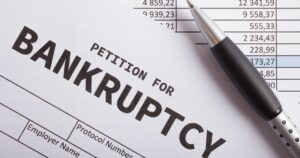Debt consolidation loans are advertised for those who are in over their heads in debt and want to take multiple payments and combine them into one. But how are debt consolidation loans handled during bankruptcy?
Sometimes, they come from financial institutions, while other times they come from a consolidation agency. Regardless, the principle idea is to consolidate payments and the money spent on interest while helping the consumer pay off their debts faster.
While they are a good choice, some consumers still find themselves struggling financially after using consolidation loans.
If this sounds like the situation you are in, you still have options. If you have tried to pay off the consolidation loan but find that you are struggling, you might be ready for bankruptcy. Before doing so, let us look at how your consolidation loans will be treated in your bankruptcy case along with any other debts you claim.
How Do Debt Consolidation Loans Work?
To understand how your consolidation loan would be treated, you must first consider what the loan is.
Debt consolidation loans take any debts you have accrued over the years, and the loaning company essentially buys out those debts. You then have you repay the loaning company directly for a single payment and interest charge. If you go through a traditional financial institution, you would receive a loan that covers all your debts. You would use the loan amount to pay off the debts and then repay the bank for the loan – with just one payment.
The idea behind these loans is to save money, simplify, and help you get out of debt. Consumers use them when they have gotten too far into debt and they want to turn their finances around without filing for bankruptcy.
For example, you have 15 accounts with various interest rates, payment amounts, and payment dates. Your consolidation loan pays off all those accounts and then transforms into one single loan with one payment, one interest rate, and one payment date.
This helps you avoid creditors taking your accounts to collections, too – if your accounts are slowly creeping into the past due area.
What Is Bankruptcy?
Bankruptcy is a legal solution for those who need debt forgiveness to get back on their feet financially. You can rebuild your financial status after you complete bankruptcy. However, your bankruptcy stays on your credit history for seven years. Therefore, it is something you want to consider before opting for bankruptcy over other options.
As a consumer, you have two options for bankruptcy:
- Chapter 7 Bankruptcy – Chapter 7 will essentially forgive all debts but also requires that you liquidate assets. The money from those assets is used to pay creditors as much as possible before the courts essentially erase the remaining debts.
- Chapter 13 Bankruptcy – Chapter 13 bankruptcy is a court-structured repayment plan. The creditors agree to this plan (which means they cannot use collection tactics) and you will make payments to a court-appointed trustee. Once the repayment plan has completed itself, your debts are forgiven and your bankruptcy ends. Chapter 13 is not instantaneous like Chapter 7 and takes three to five years, depending on the severity of the debts.
How Are Debt Consolidation Loans Handled in Bankruptcy?
If you have a consolidation loan and file for bankruptcy, you need to understand how this will apply.
The consolidation loan is considered unsecured debt, which means that you can discharge it in Chapter 7 or repay through Chapter 13 – like any other debt.
The Issue of Bad Faith
One thing you need to consider is the accusation of operating in bad faith. If you take out a debt consolidation loan but then file for bankruptcy before your first payment, the courts may deny your bankruptcy request and agree that you have operated in bad faith.
Bad faith means that you took a loan without any intention of repaying that loan. The loan company may try to argue bad faith even if you have made several payments to the account – especially for a high-value loan that has an extended repayment term.
Mixed-Use Consolidation Loans
Some consolidation loans are used to cover secured and unsecured debts. If that is your case, then discharging your debt becomes complicated. For example, your consolidation loan pays off your credit cards and two student loans. Depending on the circumstances, the courts may require that the portion used for student loans be repaid while the part for unsecured debts is discharged.
Student Loan Consolidation
The average student loan balance is $37,172. You may have multiple loans used to help complete your education, and you may use a student loan consolidation company to lower your payments. If you are struggling to repay that debt, the courts may deem it as an educational debt, which would prevent you from discharging it through Chapter 7 bankruptcy.
Speak with a Bankruptcy Attorney First
No matter what your consolidation loan was used to pay, you may still be able to file for bankruptcy and get the relief you need. The only way to see what your options are is to speak with an attorney.
Our attorneys can help you with your bankruptcy case. Let our attorneys review your loan terms, the debts involved, and see if we can find a bankruptcy solution that helps.

